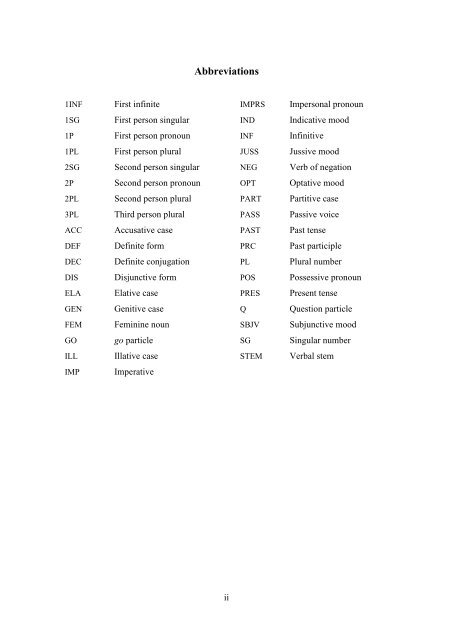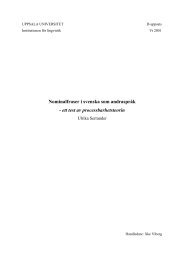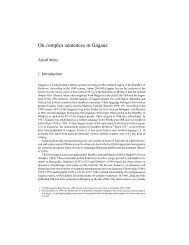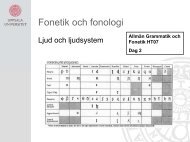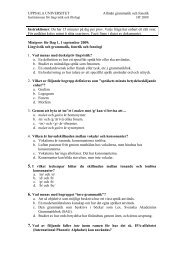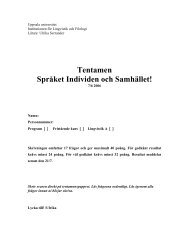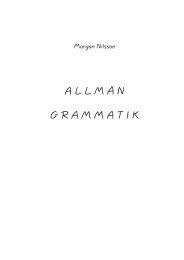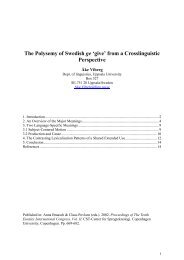The function of non-canonical imperatives in the languages of Europe
The function of non-canonical imperatives in the languages of Europe
The function of non-canonical imperatives in the languages of Europe
Create successful ePaper yourself
Turn your PDF publications into a flip-book with our unique Google optimized e-Paper software.
Abbreviations<br />
1INF<br />
First <strong>in</strong>f<strong>in</strong>ite<br />
IMPRS<br />
Impersonal pronoun<br />
1SG<br />
First person s<strong>in</strong>gular<br />
IND<br />
Indicative mood<br />
1P<br />
First person pronoun<br />
INF<br />
Inf<strong>in</strong>itive<br />
1PL<br />
First person plural<br />
JUSS<br />
Jussive mood<br />
2SG<br />
Second person s<strong>in</strong>gular<br />
NEG<br />
Verb <strong>of</strong> negation<br />
2P<br />
Second person pronoun<br />
OPT<br />
Optative mood<br />
2PL<br />
Second person plural<br />
PART<br />
Partitive case<br />
3PL<br />
Third person plural<br />
PASS<br />
Passive voice<br />
ACC<br />
Accusative case<br />
PAST<br />
Past tense<br />
DEF<br />
Def<strong>in</strong>ite form<br />
PRC<br />
Past participle<br />
DEC<br />
Def<strong>in</strong>ite conjugation<br />
PL<br />
Plural number<br />
DIS<br />
Disjunctive form<br />
POS<br />
Possessive pronoun<br />
ELA<br />
Elative case<br />
PRES<br />
Present tense<br />
GEN<br />
Genitive case<br />
Q<br />
Question particle<br />
FEM<br />
Fem<strong>in</strong><strong>in</strong>e noun<br />
SBJV<br />
Subjunctive mood<br />
GO<br />
go particle<br />
SG<br />
S<strong>in</strong>gular number<br />
ILL<br />
Illative case<br />
STEM<br />
Verbal stem<br />
IMP<br />
Imperative<br />
ii


